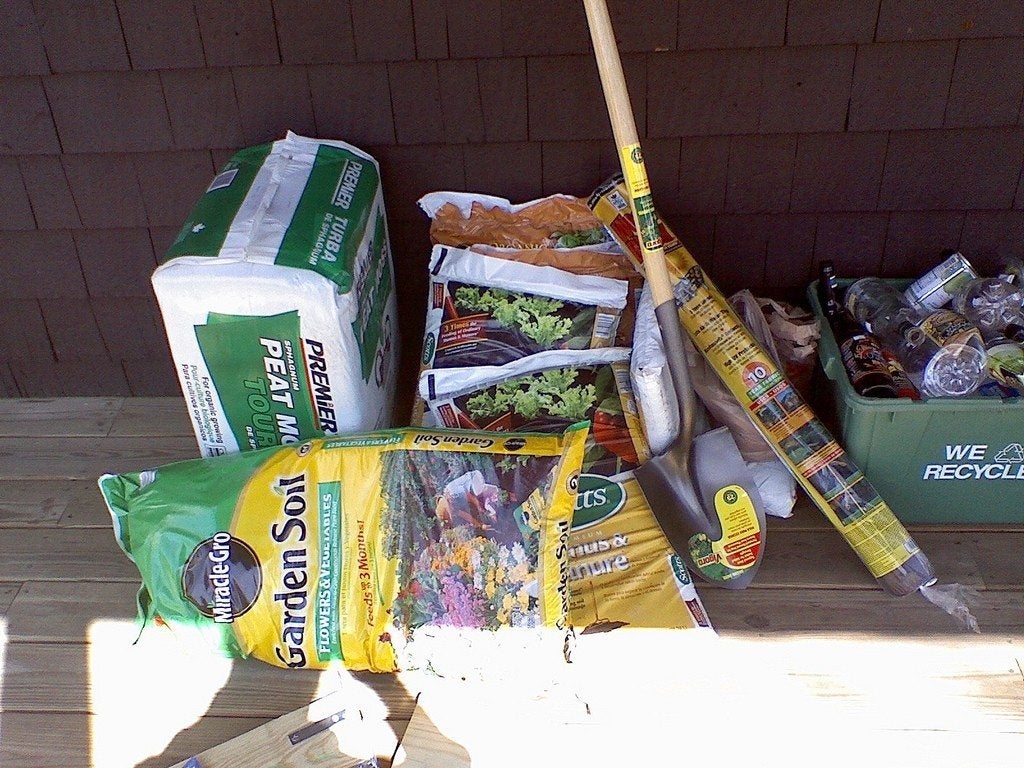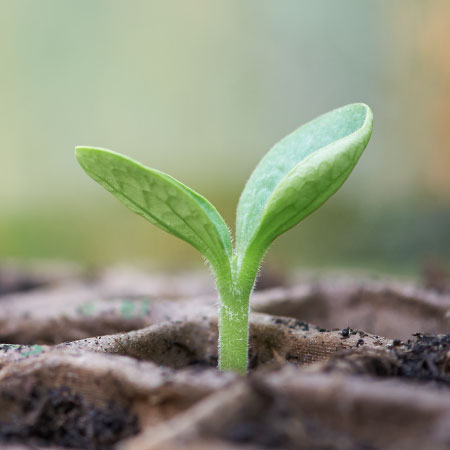Organic Gardening Supplies: Basic Tools For Organic Gardens

Organic gardening doesn't require any different tools than a traditional garden. Rakes, hoes, trowels, soil forks, and shovels all are standard no matter what type of garden you grow. If you plant in raised beds, a tiller isn't necessary, although a small one is a nice tool to have around for breaking up new ground. The difference lies in what products you use for fertilizer and pest and weed control. Let's learn more about these organic gardening supplies.
Using Organic Fertilizer
Fertilizer supplies for an organic garden begins with compost. Adding compost to any soil type increases the nutrient value and supports healthier plants. Most organic gardeners make their own compost using kitchen and yard waste, but it can be purchased at any good garden center. Ground cover crops can also be planted during the fallow season to be tilled into the soil in spring and can add many nutrients back into the garden plot. Earthworms introduced into the garden can facilitate keeping oxygen in the soil and their castings add more nutrients. Organic fertilizers can be purchased for extreme problems, but with good compost this is rarely necessary. For extremely poor soil, use of an organic fertilizer the first year may help build the nutrient value of the soil until compost can completely fulfill that role.
Tools for Organic Weed Control
Organic weed control is generally done the old fashioned way-- by hand pulling. Any weeds pulled are added to the compost bin for the next year. Most organic farmers mulch their gardens heavily to keep the weed population down. A simple, inexpensive way to make mulch is to save old newspapers and magazines and use a shredder to cut the paper into small strips. Print publications are now mostly printed with soy ink and are safe to use, just be sure to remove any staples. Organic pine needles and hay are other options.
Organic Pest Control Options
Finding or using pest control supplies for an organic garden can be a big issue for gardeners, but there are many ways to naturally control the bug, slug, and caterpillar population.
- The first step to controlling pests is to remove any diseased, or otherwise sickly, plants from the garden immediately. Healthy plants are more resistant to damage from insects and other pests.
- A simple method of organic pest control to deter caterpillars and slugs is to put a plastic barrier around the plant. You can make this barrier by cutting out the top and bottom of individual-sized soft drink or water bottles. Crushed eggshells or coarse sand can also be sprinkled around plants that attract this type of pest.
- Netting is another option for insects and moths. While netting can be cost prohibitive for large gardens, it works well for smaller raised beds.
- Organic pesticides can be purchased, or there are several that can be made at home using common household ingredients. Companion planting and the introduction of beneficial insects to the garden also can cut down on pest damage.
- A good fence is a must to deter the four-legged pests such as rabbits. While poultry fencing can be expensive, it is a permanent solution to the problem. Deer, in more rural areas, can be a major headache for any gardener. A good deer fence is generally at least 7 feet (2 m.) high. You can make this fence by adding barbed wire above the poultry fence to keep all critters away from the garden.
The supplies for an organic garden need not be any more expensive than those for a traditional garden. Look for ways to improvise the more expensive equipment and don't believe everything the salesman at the garden center tries to convince you is needed. Do searches on the Internet to find natural solutions for any specific problems that may arise. Oftentimes, the answer is within your reach and is simple to make.
Gardening tips, videos, info and more delivered right to your inbox!
Sign up for the Gardening Know How newsletter today and receive a free copy of our e-book "How to Grow Delicious Tomatoes".

Kat Yares is a writer for Gardening Know How, specializing in organic gardening techniques.
-
 Looking For Plants To Give You The Soft And Fuzzies? Try These 5 Fuzzy Leaf Plant Options
Looking For Plants To Give You The Soft And Fuzzies? Try These 5 Fuzzy Leaf Plant OptionsLovers of texture, drama, silver foliage and tactile plants will adore these special sensory garden additions. These fuzzy leaf plant options will leave you all aglow
By Susan Albert
-
 Get Ready For A Summer Of Hummers! Grow These Full Sun Hummingbird Plants and Flowers
Get Ready For A Summer Of Hummers! Grow These Full Sun Hummingbird Plants and FlowersIf you’re lucky enough to enjoy a sunny backyard, make sure you are maxing out on your pollinator opportunities and grow these full sun hummingbird plants and flowers
By Tonya Barnett